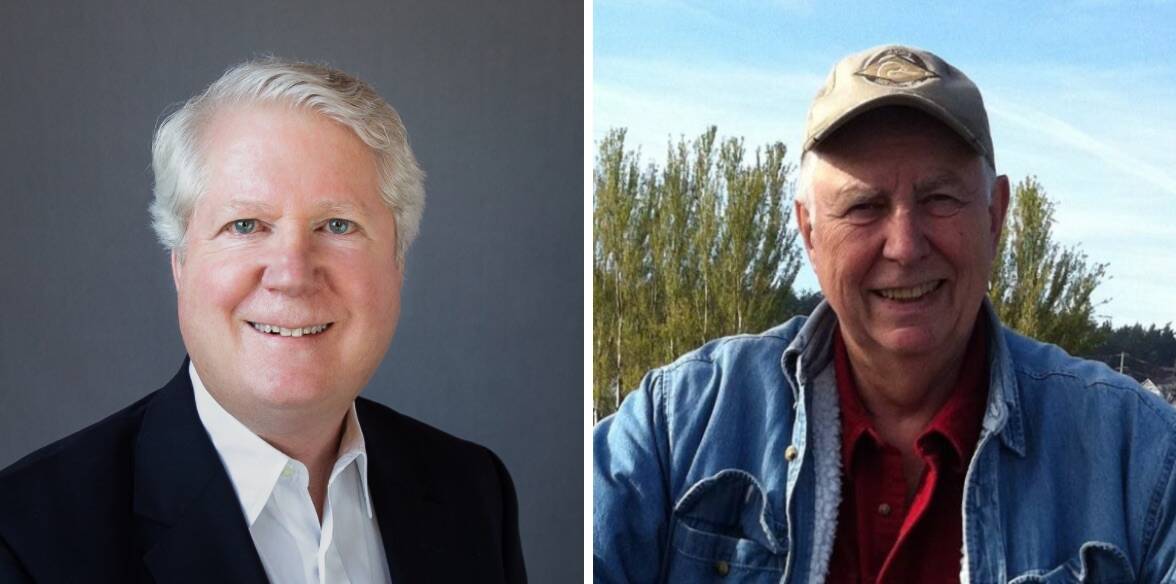Candidates for the WhidbeyHealth board of commissioners talked about improving employee retention and compensation at the League of Women Voters candidate forum on Thursday.
James Golder, a former Idaho state representative with a background in business and economics, is challenging longtime health care law attorney and incumbent Commissioner Kurt Blankenship.
Both candidates discussed the need to pay hospital workers fair and competitive wages at the forum Oct. 14.
“We need to work on Whidbey’s finances so we can get our employee situation improved,” Golder said. “I think our nurses are underpaid. Our staff is underpaid. The administration, I believe, is overpaid.”
Golder said increasing staff wages would boost their currently low morale and help restore islanders’ trust in the hospital district. According to Golder, only around 24% of Whidbey residents use WhidbeyHealth services.
Blankenship also identified recruitment and retention of staff, including cafeteria and maintenance workers, as a top priority for the district.
The candidates said money from the levy, which they support, would be used to provide higher wages for hospital workers. Increased compensation, each claimed, is the key to attracting workers to the district during a time when health care professionals are in short supply across the nation and, according to Blankenship, rural hospitals are closing at alarming rates.
“We need to remain an independent hospital,” Blankenship said. “We don’t need to be taken over by a large hospital system. That’s happened to too many small hospitals, and the people that those communities serve have suffered because of it.”
Golder chided the district for “bad financial management in the hospital in the past,” saying the necessity of the levy was unfortunate. Blankenship reminded voters that the hospital district has never asked for a levy increase since its inception in 1964.
Each candidate pointed to his own past experience as evidence of his being qualified for the position. For Golder, it is his business expertise that he believes would prove the biggest asset to WhidbeyHealth if he were elected.
“I’m a turnaround specialist with businesses,” he said. “I can move into the hospital and help to cut some of the unnecessary expenses, and to improve their revenues.”
Blankenship pointed to his history with and understanding of WhidbeyHealth and his four decades of experience with other health care organizations and professionals as a reason for residents to vote for him.
“I’m very knowledgeable about health care financing and what it takes to attract grants, and to maintain hospital systems, what it takes to comply with the vast number of state and federal regulations that apply to the operation of WhidbeyHealth,” he said.



